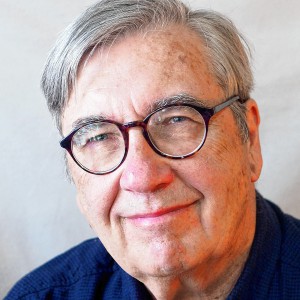City may curtail political signage
| Published: 01-02-2023 8:07 PM |
LEBANON — The City Council will consider tighter regulations for placing political signs on public property, in an effort to reduce aesthetic blight along roads and to contain the proliferation of signage during elections.
The council has scheduled a public hearing on Wednesday to consider amendments to the city ordinance for non-public signage in highway right-of-ways that would further restrict when and where political signs may be placed.
The amended ordinance would prevent the placement of political advertising “within public highways” until 30 days prior to the election. Currently the ordinance does not specify when political signs may initially be placed.
In addition, political signs would not be permitted “on traffic islands or other portions of public highways that are designated as part of the city’s beautification program designated by the City Manager.”
At a council meeting on Dec. 7, City Manager Shaun Mulholland said he had received “a number of complaints” that political signs during the 2022 primary and general election seasons were cluttering traffic islands where the city or community volunteers had planted flowers or ornamentals as part of a beautification pilot program.
The program, launched last year, solicited city businesses or nonprofit groups to sponsor one of six traffic islands located downtown, either through a monetary donation or organizing a team of employees or volunteers to plant flowers and maintain them.
“We have flowers growing (and) people who donated money or used their employees to keep those islands nice, and then they get covered up by political signs,” Mulholland told the council. “So that caused quite a bit of consternation.”
Mulholland said that people could still post political signs on traffic islands that have not been designated for beautification, though he indicated that the city would like to expand the island beautification program to other parts of the city, including West Lebanon.
Article continues after...
Yesterday's Most Read Articles
 Hartland voters successfully petition for school budget revote
Hartland voters successfully petition for school budget revote
 JAG Productions announces closure, citing ‘crisis facing the arts’
JAG Productions announces closure, citing ‘crisis facing the arts’
 Hanover’s Perreard may soon capture the attention of collegiate coaches in two athletic pursuits
Hanover’s Perreard may soon capture the attention of collegiate coaches in two athletic pursuits
New Hampshire statute RSA 664:17 grants control to municipal officials over whether to allow political signs on public property, including highway rights of way, according to City Attorney Matthew Decker, in a letter to Mulholland last week.
In addition, Decker stated, the council has discretion under this statute to decide “the time period during which such signs are permitted, and the specific locations within the (right-of-ways) where signs may or may not be placed.”
Several city councilors, during their Dec. 7 discussion, noted that political signs in 2022 were going up earlier in the campaign season than in the past, which some councilors attribute to the country’s more divisive and competitive political climate.
“In the past several election cycles, I’ve noticed this getting worse and worse all the time,” said Mayor Tim McNamara. “And of course we don’t restrict anything that people want to do on their own property, but this is the first time I have seen people leave up their political signs for years after the election was complete. And I’m afraid that’s where we are heading in the future.”
In regard to the public right-of-ways, the accumulation of political signs turned the city’s median strips and traffic islands into “visual litter,” said Councilor Karen Liot Hill.
“I am a huge fan of political yard signs,” said Hill. “I call them ‘flowers of democracy’ actually. But I think it’s reasonable for us to have some limitations about when and where they can be planted.”
Hill thought that allowing political signs 60 days prior to the election was reasonable, though other councilors advocated for the 30-day limit.
Assistant Mayor Clifton Below recalled 30 years ago when political signs were mostly placed on private properties, to the extent that signs would not appear on public property until around a week before the election.
“The focus was really to find people to put them in their yards as a sign of support, not about how many signs you could print and clutter the right-of-way with,” Below said.
But Decker warned in his letter that the city ordinance, both the amended proposal and its current form, could face a constitutional challenge under federal law, based on its current language.
Decker cited the U.S. Supreme Court case, Reed v. the Town of Gilbert, Ariz, a 2015 case where the court struck down a municipal ordinance concerning temporary signs on property as unconstitutional, because the ordinance placed stricter limitations on signs advertising religious services than signs that displayed secular political or ideological messages. The court ruled that restricting expression based on the message or content was in violation of the First Amendment.
The proposed amendments, Decker noted, share similarities with the complaint raised in the Reed case, because the restrictions apply specifically to signs with a political content, as opposed to all types of signs.
Decker recommended a city review of the ordinance as a whole, as well as the proposed amendments, to ensure that its language is clarified to “better harmonize with the Reed ruling.”
The public hearing will take place at the next city council meeting, scheduled for Jan. 4 at 7 p.m. at City Hall.
Patrick Adrian can be reached at padrian@vnews.com or 603-727-3216.

 At Dartmouth, hundreds protest ongoing war in Gaza and express support for academic freedom
At Dartmouth, hundreds protest ongoing war in Gaza and express support for academic freedom Over Easy: ‘A breakfast without a newspaper is a horse without a saddle’
Over Easy: ‘A breakfast without a newspaper is a horse without a saddle’ Lawsuit accuses Norwich University, former president of creating hostile environment, sex-based discrimination
Lawsuit accuses Norwich University, former president of creating hostile environment, sex-based discrimination
